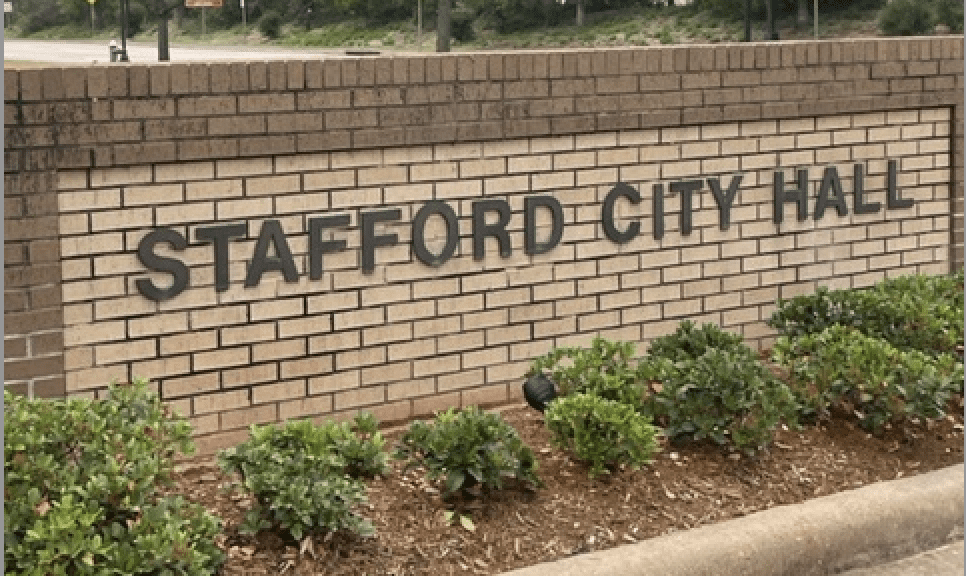On the heels of an election largely centered on candidates’ opposition to implementing a property tax, the Stafford City Council has opened discussion on placing a property tax measure up for a vote next November.
The small town, just shy of 20,000 residents and bordered by Houston to the north, eliminated its property taxes almost three decades ago under late mayor Leonard Scarcella. At the time of his death in 2020, Scarcella was the longest-serving mayor of any city in the country, having been elected in 1969 at age 29. In an effort to end the city’s reliance on a municipal property tax during his tenure, he pushed for and passed a 100 percent property tax abatement. While it has outlived him so far, it might not last much longer.
The banner on the city website which reads “The City with No City Property Taxes” might soon have to come down.
In February of 2022, the conversation surrounding implementing a property tax started, but the mayor denied it being an option on the table. However, after losing re-election this November, the city council held a special called meeting in order to open discussions on changing the way it has done business.
Council Member Virginia Rosas opened the meeting by saying, “Unless someone can come up with an idea that’s going to create revenue that’s going to cover our budget, now is the time … We have no other alternatives.”
Staffrod’s budget has continued to grow, and the city has pulled from reserve funds to bridge budget gaps. The city also received $4.3 million in ARPA funds and has consistently seen increases in its sales tax revenue.
Another council member, Tim Wood, campaigned on keeping the city property tax-free but has since reversed his position.
“I came in like most of us on a platform on zero property tax, and that was genuine; it wasn’t pandering,” said Wood. “At some point we have to understand that the answer can’t always be no … there simply is not enough revenue from sales tax generation to cover the cost of the city …”
He continued, “One might say, ‘Well, if you stop all this wasteful spending …’ We don’t even get dinner, we have to either stop by Whataburger, best burger, or whatever it is.”
A string of citizens showed up to testify, with the large majority against the idea of changing their financial structure.
“I can see that a lot of you let the citizens of this town down. The mayor worked hard to have no property tax in this town, and y’all just threw it away,” a 28-year Stafford resident said. “Y’all think money grows on trees, that you can sit up here as public officials and live off taxpayers with all your highfalutin, wanting to get big salaries and pay. You’re supposed to be a public servant not a public menace.”
Another testified that when she and her husband were looking for a place to build a home they specifically went to Stafford because of the lack of property taxes.
And yet another rattled off a list of what he considered financial missteps by the current and previous councils who relied on one-time grant money for recurring expenses, borrowed $2.5 million, and budgeted a 2 percent increase cost of living increase for employees but instead decided to give 5 percent. “You acted like drunken sailors, and now you’re back in your cabin with a hangover.”
The general frustration seemed to be that there was no clear explanation by the city as to why they have found themselves in a precarious financial situation and even less of a plan of where the money would be spent if they did implement the tax.
To change the current structure and implement a property tax, the council will have to bring it to a public vote, with November 2024 being the earliest possible date. If those who showed up to testify are any indication, city officials will have an uphill battle selling the idea to the public.




